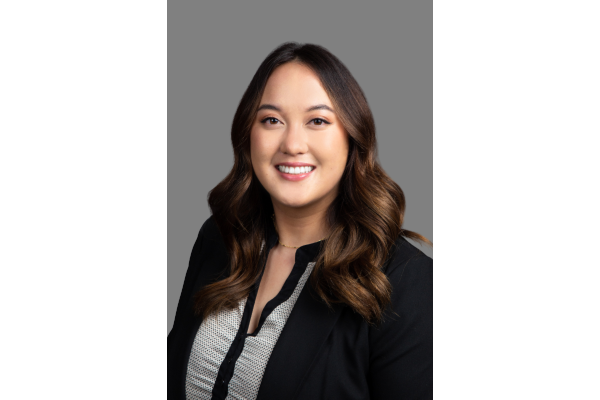
“Chúc mừng năm mới sức khỏe dồi dào!”
This is a common Vietnamese Lunar New Year greeting that expresses celebration and wishes for good health in the coming year.
I just completed my first semester at Duke Physician Assistant Program, and as I navigate through medicine as a child of Vietnamese war refugees, my definition of “good health” changes with the ever-evolving medical climate. What does it mean to be in good health, and how has achieving this proven difficult for patients, like my parents, who are immigrants?
For my parents, coming to the United States was essential to surviving while the Vietnam War ravaged their communities. It was no longer safe to remain in their homes, so seeking asylum was my parents’ only option. Safely coming to the United States was a challenge in itself, and it wasn’t easier upon arrival. They had to adopt a promising yet foreign culture, learn a new language, and create a new community, all while carrying the burden and grief of losing their homes.
My parents, like many other immigrants, were forced to be resilient as they concealed their trauma to reenter society by learning English and working minimum-wage jobs. Their poor health literacy became apparent as they shuffled through health documents filled with perplexing technical jargon to understand the American health care system. This was a new world. They didn’t know or understand what resources were available to them, and that greatly limited their access to care.
Immigration status is a social determinant of health.1 What has made it difficult for immigrant communities to access health care equitably? Were language barriers making it difficult for patients to adequately articulate their concerns or decipher the headache-inducing medical vernacular in their treatment plans? Were they walled off from comprehensive health care due to limited access to resources and limited health literacy? Was the financial burden of missing work or the cost of treatment too great to see their providers? Did the fear of deportation consume their decision-making when electing for or against medical care? These are the questions that plague me as I seek how to best support these communities in their pursuit of good health.
I used to feel powerless in my efforts to address these concerns. How can a young Vietnamese-American physician assistant student such as myself conquer this massive problem that is health inequity?
My oath to medicine binds me to lifelong learning, and as a future health care professional, I have a responsibility to listen, be curious, and deep dive into my patients’ narratives. This is my gateway to addressing their individual concerns to overcome their challenges of health care accessibility. Where I used to see defeat in my limited Vietnamese and Spanish fluency, I now perceive it as a challenge to overcome in order to foster stronger communication, familiarity, and trust with my future patients.
I am granted the privilege of knowing my patients in their most vulnerable states, and this is a crucial opportunity to connect them with the appropriate resources, whether it be affordable medications or social work. It will be more important than ever to apply an interdisciplinary team-based approach to maximize their care. I recognize the platform I will have as a future physician assistant, and I have a duty to my future patients to advocate for their rights in order to uplift my community and promote health equity. As my experiences develop, I will equip myself with the tools, knowledge, and wisdom necessary to effectively campaign for equitable policies. I alone cannot cure the inequities that create inaccessibility to health care amongst immigrant communities, but I can be their ally and advocate as we navigate through this complicated health care system together.
Working in medicine will challenge my convictions as I orbit around this healthcare system, but I promised myself that I would never falter or disparage in my efforts to practice with empathy, compassion, and vigor. No matter how small, we all are capable of practicing with cultural humility and integrity. We have the ability to instill change in our patients’ lives with hopes that it will flourish beyond the examination room. I implore my readers to see more, hear more, and do more for these communities. This will be a boundless pursuit as our communities continue to expand with the growing interconnectivity of our world, and I, for one, am ready for the challenge.
References
National Academies of Sciences, Engineering, and Medicine; Health and Medicine
Division; Board on Population Health and Public Health Practice; Roundtable on the Promotion of Health Equity. Immigration as a Social Determinant of Health: Proceedings of a Workshop. Washington (DC): National Academies Press (US); 2018 Aug 30. 3, Immigration and the Social Determinants of Health.
https://www.ncbi.nlm.nih.gov/books/NBK535940/. Accessed 30 Dec. 2022.
Diana Le is a first-year student with the Duke Physician Assistant Program. Email diana.le@duke.edu with questions.
Editor’s note: Duke Physician Assistant Program students blog monthly. Blogs represent the opinion of the author, not the Duke Physician Assistant Program, the Department of Family Medicine and Community Health, or Duke University.
Return to Duke Physician Assistant Program